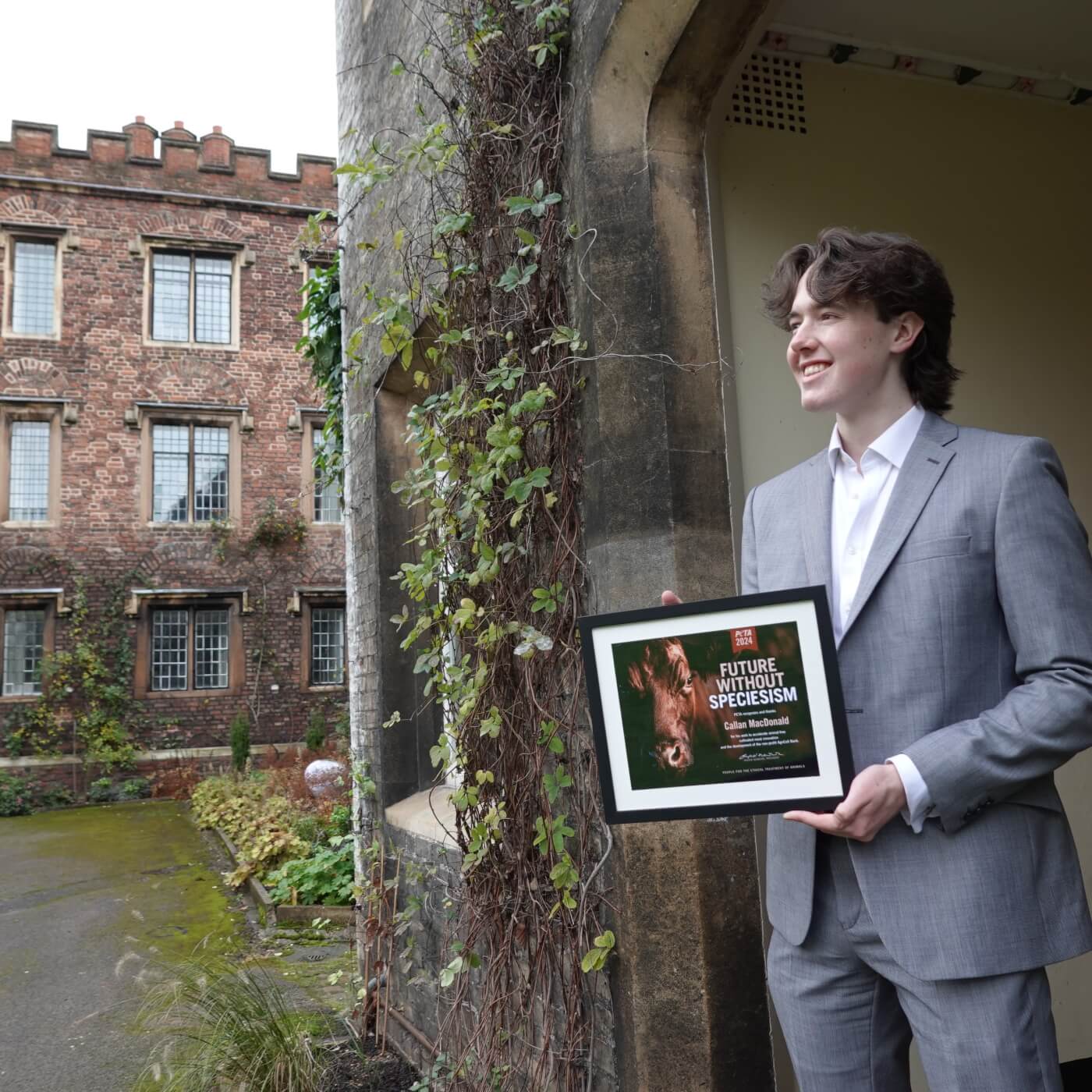University of Cambridge Student Wins Award for Lab-Grown Meat Innovation
University of Cambridge postgraduate student Callan MacDonald, from Northam in Devon, is the inaugural cash-award winner of PETA US’ “Future Without Speciesism” contest.

What Is the ‘Future Without Speciesism’ Contest?
Contest applicants were tasked with identifying ways in which animals are subject to speciesism – the archaic notion that humans are superior to other animals and are therefore entitled to exploit them – and devising an action plan or design for a marketable animal-free replacement.
MacDonald received $2,500 (approximately £2,000) for his winning invention AgriCell, which could revolutionise the lab-grown meat industry. The contest remains open to students worldwide and does not convey ownership rights to PETA US or prevent applicants from patenting their inventions.
Lab-Grown Meat Innovation Will Spare Animals’ Lives
MacDonald’s groundbreaking innovation, the first-of-its-kind cell bank to archive and preserve the most advanced primary cells for meat cultivation, puts lab-grown meat one step closer towards market viability without animal suffering. In the absence of a reliable repository of high-quality animal cells that can be grown at an industrial scale, lab-grown meat developers kill animals in the hopes of finding cells that might work. This unpredictable process is a significant stumbling block for the cultivated meat industry.
MacDonald’s non-profit organisation intends to acquire and supply cells, which are genetically identical and capable of infinite replication, to academic and private laboratories developing new cultivated meat products without killing additional animals. Market researchers predict the global cultivated meat industry could be worth nearly $14 billion by 2043.
Animals Are Not Ours to Eat
PETA has long championed cultivated meat as an opportunity to end the meat industry’s cruel and destructive raising and killing of sentient animals for their flesh.
Pigs are soothed by music, cows mourn when a loved one dies or when they’re separated from each other, and chickens enjoy taking dust baths, roosting in trees, and lying in the sun. Yet billions of these animals lead short, miserable lives in the meat industry, where they’re subjected to extreme crowding, routine mutilations without pain relief, a terrifying trip to the slaughterhouse, and a violent, painful death. Animal agriculture also fuels the climate catastrophe and the emergence of zoonotic diseases linked to the rearing of animals for food.
Don’t Wait to Help Animals
Everyone can help spare these living, feeling beings before the lab-grown meet market matures simply by not eating them. It is easier than ever to go vegan, and each person who does can spare up to 200 animals per year, reduce their carbon footprint, and improve their health.
Take PETA’s January Vegan Challenge to discover the benefits of vegan eating:




